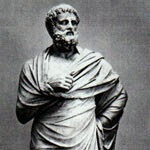Yesterday, I said goodbye to another lot of Year 10 book clubbers. Natasha, Karyn and Jenny were the loyallest members, who turned up to pretty much every meeting between Year 7 and 10, and I gave each of them a gift voucher for Dymock's bookshop. But there were plenty more. Some had joined us only this year. One, Hayden, who had been a member briefly in Year 7, returned this year, bringing his friend Mark, a lad who endeared himself to me in Year 8 when he recognised a quote I made from Monty Python. Mark is a keen reader, though this year he was mostly absorbed in the Game Of Thrones series of fat books, so had little time for much else. I never did get him started on Terry Pratchett, a pity, because he would have enjoyed Discworld.
Hayden is, in fact, the only one of them who appears in that picture with Marianne De Pierres, because the others in his class were stuck in a maths test. Safa and Meka joined us this year and read manuscripts for Allen and Unwin.
Nusaiba was another veteran, though not as much as some of the others. She did come to Reading Matters and several meetings this year.
Lula joined us last year and came with us to the Reading Matters conference. Emily, who had been with us since Year 7, more or less dropped out last year, but still wandered in and out. I missed Emily, but the club was for their benefit, not mine.
Braydon was in and out, but had also been with us for a long time.
We all had a lot of fun together. They chose books, came on excursions, read manuscripts for Allen and Unwin, met writers who visited us. Last year, Emily read The First Third by Will Kostakis, loved it and made her boyfriend a bit jealous when the author visited. Well, Will is young and good looking. :-) I said, "Don't worry, he's going back to Sydney," and the boyfriend snarled," Thank God!" But it was the book she loved. In the novel, the boy's very Greek grandma dies, which devastated Emily, but the author's grandmother, who inspired the one in the novel, is alive and well; she rang while Will was chatting with book club and he handed the phone to Emily.
Natasha was very sad yesterday, almost in tears when I handed her one of the laminated certificates I made for all my Year 10 book clubbers. After the graduation ceremony she gave me a hug and had her mum take a picture of us together. I have promised to see what I can do about having her attend Alice Pung's talk next year.
I think I'm almost in tears myself.That's the thing about being a teacher. You have to say goodbye so soon!







